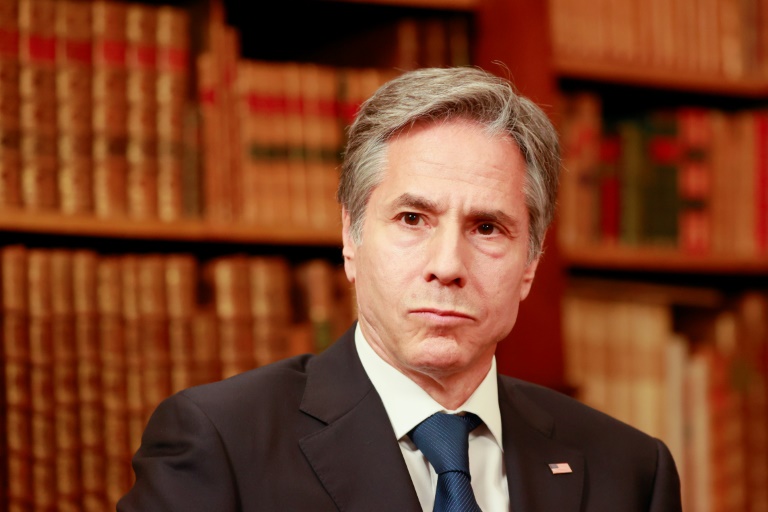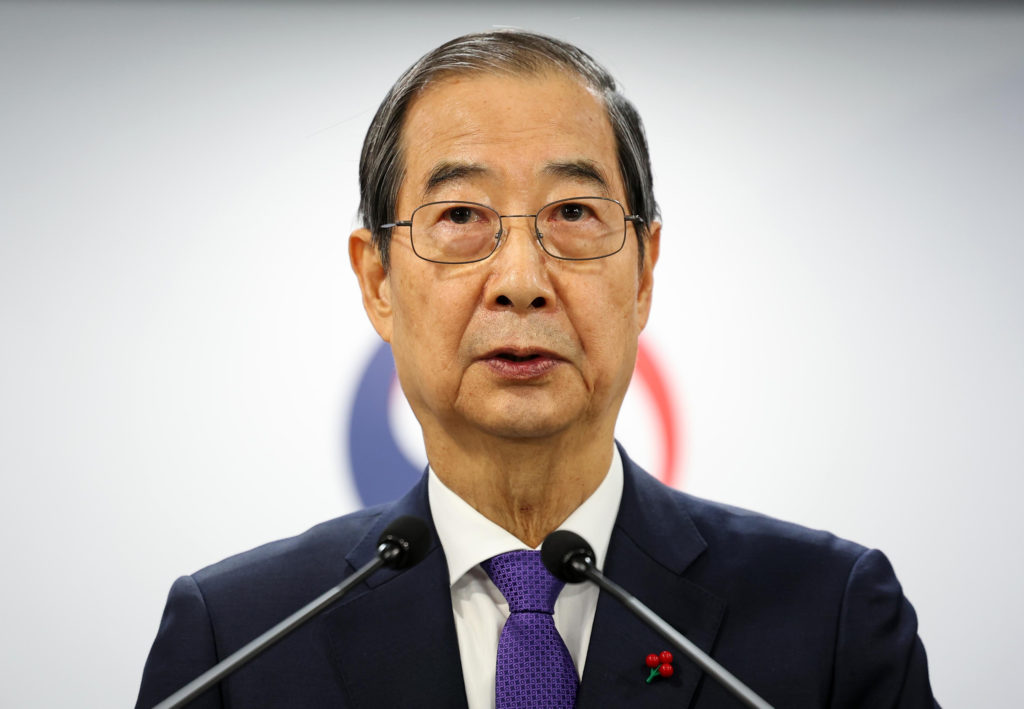Days after Joe Biden’s first presidential trip abroad, Secretary of State Antony Blinken is heading back to Europe Tuesday to keep up the work of building Western unity against a rising China.
Blinken will travel to Berlin, Paris and Rome, meeting the European Union’s two key powerbrokers, German Chancellor Angela Merkel and French President Emmanuel Macron, as well as Vatican leaders and taking part in talks on bringing peace to war-scarred Libya and defeating the Islamic State extremist group.
The top US diplomat will close his trip with a June 29 meeting in the Italian city of Matera of the Group of 20 major economies, potentially bringing him face to face with his counterpart from China — whose growing assertiveness abroad and at home has been identified by the Biden administration as the top US challenge.
Biden on his own trip had proposed a vast infrastructure plan by the Group of Seven industrial democracies to rival China’s signature Belt and Road Initiative and led a NATO summit to take up China more explicitly than ever before.
“This trip is a continuation of the priority that President Biden has made of rebuilding our relationships with allies,” said Phil Reeker, the top US diplomat for Europe.
“The strength of these relationships will lay the foundation for many of the foreign policy priorities, including economic recovery as we emerge from the Covid pandemic and pushing back on the People’s Republic of China and authoritarianism generally around the world,” he told reporters.
– Repairing rifts –
Most Europeans have rejoiced at Biden’s enthusiasm for alliances after the turbulent presidency of Donald Trump, who needled friendly nations over what he saw as unfair trading practices and insufficient contributions to common defense.
Biden’s team is distinctly transatlantic. Blinken, a soft-spoken foreign policy veteran, grew up partly in Paris and is fluent in French, a sharp change in style from his brash predecessor Mike Pompeo who came from the world of deeply conservative US politics.
Biden has quickly moved to ease rifts with Europe, reversing Trump’s decision to pull US troops from Germany and resolving a longstanding rift with Europe on aircraft subsidies.
More controversially, Biden waived main sanctions on Nord Stream 2, the gas pipeline near completion between Russia and Germany that is especially opposed by Ukraine, which is fighting pro-Russian separatists and fears losing its leverage as a transit point.
Even some lawmakers of Biden’s Democratic Party have criticized the approach, seeing appeasement of Russian President Vladimir Putin whom Biden met last week in Geneva.
The Biden administration argues that the project was too far along to stop and that it instead preserved a path to work with Germany on setting red lines for Russia.
Reeker said the administration decided to “make something positive out of the difficult situation.”
– Shifts on China –
Ian Lesser, vice president of the German Marshall Fund of the United States, said Nord Stream was one of a number of issues where Biden will weigh a “difficult balance” with the Europeans.
“The question is, really, do we want to make this about Germany or make this about Russia?” he said.
As Merkel prepares to end her 15-year tenure after this year’s elections, the new, friendly face in the White House helps ensure that the relationship between the United States and the EU’s most populous nation will remain stable.
But the next German leader could take a different approach on China than Merkel, an advocate of wooing the Asian power through trade.
One leading candidate, Annalena Baerbock of the Greens, has warned of Chinese companies such as Huawei harvesting data in Europe and vowed a tougher response over treatment of the Uyghur minority — stances that would delight the United States, which accuses Beijing of genocide.
“There has been a hardening of views in Europe as well on China,” said Lesser, who is based in Brussels.
“While attitudes here are not quite as they are in Washington and they may never precisely align in details or in style, the Biden administration is looking to encourage that long-term convergence.”










